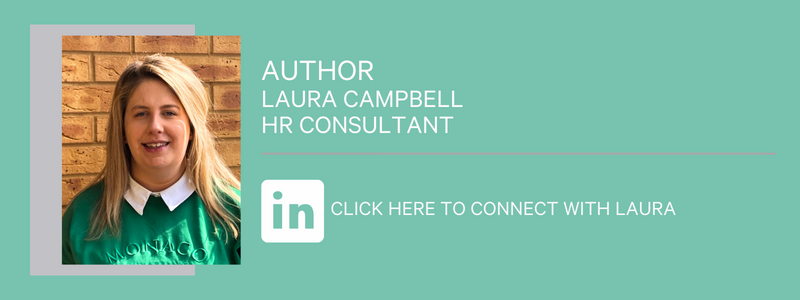Notetaking is not as basic as you may think, taking notes plays a very important role in any formal HR related meeting. These notes are likely to be used as evidence in any associated procedural meeting, and may be used at a later date at an appeal or even at an Employment Tribunal.
In some cases, note taking can be seen as a low level dutiful role, that is often taken up by someone that just so happens to be free and in the right place at the right time to support during the meeting. It is important that an employer considers the note takers ability to make comprehensive notes prior to appointing them in a meeting, or alternatively consider other voice recording software.
It is really important that note taking is taken seriously, in all formal HR meetings. For example, investigation meetings, grievance or disciplinary meetings, performance and capability matters.
What is the purpose of note taking
- They provide a summary of what was discussed at the meeting
- They can be used and easily referred to if needed at a later date by either party e.g. investigations, appeals etc.
- They form the basis of evidence in any HR process, for which the correct outcome for all parties can be formed.
- The notes can be used for third parties (particularly tribunals) to understand the nature of the concerns and what was discussed between both parties.
What are the benefits of note taking
As with any meeting it is often difficult to remember what was discussed when and by whom, so when it comes to a formal meeting having an experienced note taker present is extremely beneficial to both parties:
- It allows the employer to focus their attention on the employee and to ask questions without having to worry about remembering what was said and trying to take the notes too
- It gives parties piece of mind that having a detailed record of what was said at the meeting can serve as evidence, if there was to ever be a dispute at all, as the conversation is being documented – there is no risk of uncertainty
- It will help to show you demonstrated compliance with regards to employment laws and regulations
- Accurate and detailed notes give everyone within the meeting a better understanding of what was discussed and any actions / agreements that have been made and the next steps. It also ensures that everyone is on the same page.
- It also ensures that everyone present at the meeting has the opportunity to have their say and for this to be documented formally.
Should notes be verbatim?
There is no requirement by law for the notes to be verbatim and it is very difficult to do so even for the experienced note taker. The notes, however, must be a true reflection of what was discussed, capturing all the key and pertinent points raised by both parties. There should be no bias in the note taking.
What are the key points?
The key points should be those comments relating to the subject matter of the meeting and when the employee is detailing what happened, key dates, people, times, quotes etc., as these serve as the evidence of the employee and gives you as the employer the opportunity to understand who may have also witnessed what happened.
The full allegations provided by the employer and response by the employee should be captured and remember as a note taker you have every right to ask both parties to slow down so that you can keep up with what is being discussed.
You must also remember to capture any emotions that are demonstrated within the meeting, so if someone gets upset or angry ensure that you capture this detail too within the notes.
Can the meeting be recorded?
Neither party has the right to record a meeting unless both parties agree to it. Recording a meeting in this way may make both parties feel uncomfortable hence why it is a good idea to have a note taker in the meeting instead. If the employee is accompanied to the meeting by a trade union or a colleague, then they are entitled to take their own notes too.
Remember when you adjourn the meeting, ensure that the employee and their representative take all their belongings with them, or you leave the room, to ensure that no secret recordings are being taken.
Software that records and transcribes meetings is becoming more and more used in meetings, we often find that the type of meeting and parties involved can have a bearing on whether people are comfortable with this. It is certainly something to consider as an option. But again, all parties have to agree and be comfortable with it.
What happens if the employee doesn’t agree to the notes or refuses to sign them?
If an employee is being defensive and doesn’t wish to sign the notes, then ask them why and suggest that they make tracked change amendments for consideration by both parties to see if an agreement can be reached. If the employee still refuses to sign the notes, then ensure that this is noted on the notes that the employee does not wish to sign the notes and include their reasons for not doing so. A copy of each parties versions can be included.
If the notes do not capture everything that has been discussed then make sure you add amendments to the notes and include them for the employee to review and then subsequently sign, you must ensure that at the end of the meeting that the notes had been read and signed by yourselves and the employee.
Importantly ensure the notes are dated at the top, if the notes are illegible then the notes maybe needed to be typed up if necessary.
At the end of the meeting ensure that the employee is given a copy of the notes, if you are unable to do so then ensure that a copy of the notes is sent to them as soon as possible following the meeting.
Please refer to our earlier blog on How to take notes during disciplinary hearings for further information on note taking.
If you have any questions regarding taking notes during disciplinary hearings or would like additional support, please contact a member of the ViewHR team today who will be happy to help.


